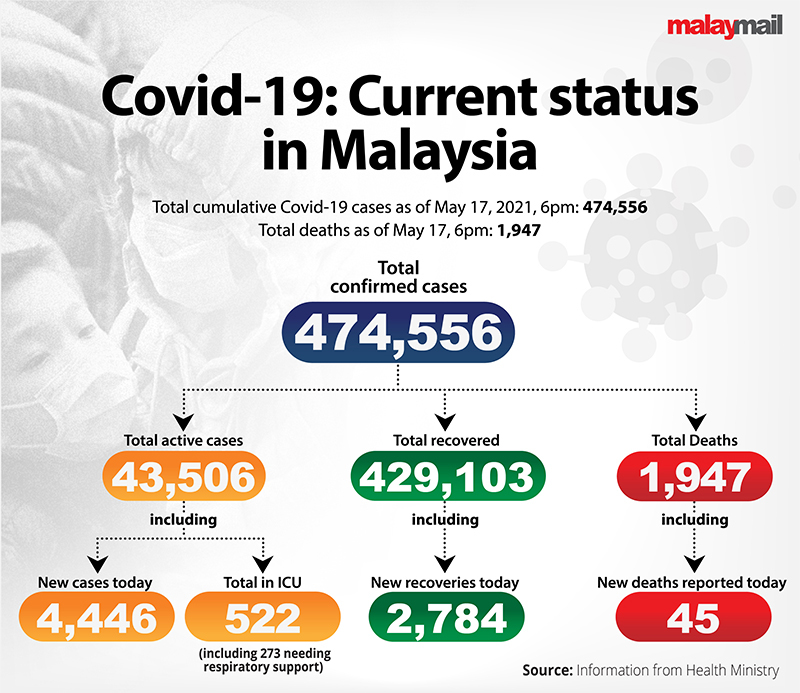KUALA LUMPUR, May 17 — The Selangor Health Department is expected to add up to 1,600 additional beds, with 300 units designated for intensive care units (ICUs) and the rest to be placed at Malaysia Agro Exposition Park Serdang (MAEPS), the ad-hoc centre where Covid-19 patients with milder symptoms are treated.
Mentri Besar Datuk Seri Amirudin Shari made the announcement in a statement issued this evening, as one of several initiatives planned to address the sharp spike in infections in the state, now the epicentre of the pandemic in the country again.
“I was told by the JKNS about the increase of ICU equipment and number of additional beds for Covid-19 patients in Selangor. As many as 300 beds and ICU wards will be added, while 1,300 beds will be sent to MAEPS, Serdang,” he said.
MAEPS will also no longer admit patients from other states, Amirudin added. The exposition facility will now receive patients from Selangor and Kuala Lumpur only following the Ministry of Health’s green light for new Covid-19 Integrated Quarantine and Treatment Centres (PKRCs) to be set up in other states.
The decision came as public health authorities anticipate MAEPS, initially the primary PKRC in the peninsula, could soon be overcrowded as the number of infections in Selangor pile up.
Cases in the state have accounted for half of daily cases on average over the last few weeks.
“We have decided that MAEPS will only treat patients from Selangor and Kuala Lumpur following the decision to set up PKRCs in several other states such as Negri Sembilan, Melaka, Pahang, and Johor,” Amirudin said.
To address overcrowding at the Malawati Stadium in Shah Alam, the state’s main Covid Assessment Centre, Amirudin said the state would mobilise up to 150 volunteers consisting of civil servants, local government officials and medical students.
“The volunteers will help with traffic flow, managing and evaluating Covid-19 patients,” he said.
Some of the medical volunteers will also man newly set up calling centres that will conduct home assessments, diverting some of patient traffic away from overcrowded CACs.
Amirudin said nearly half of those present at the Malawati CAC are usually there to dispose of their quarantine bands or to seek quarantine discharge, and this traffic can be reduced through a specific counter to be set up immediately.
“We want to decrease the congestion at the Malawati Stadium CAC, and at the same time, reduce the risk of infection for those ending quarantine,” he said.

















.jpg)


